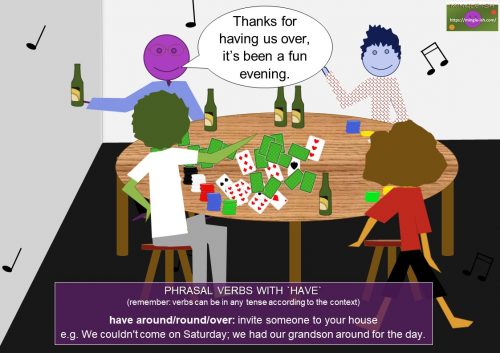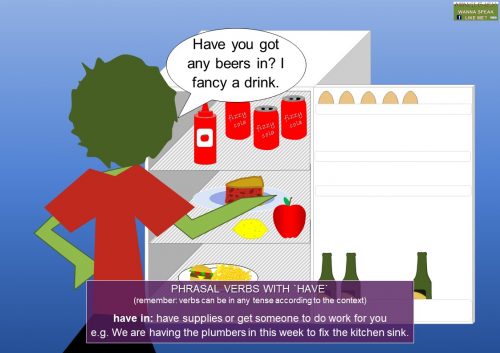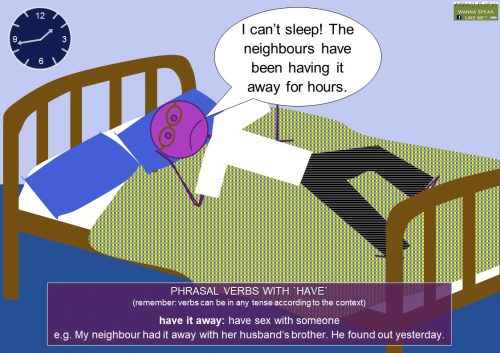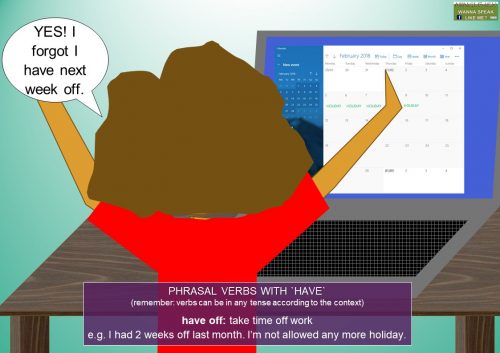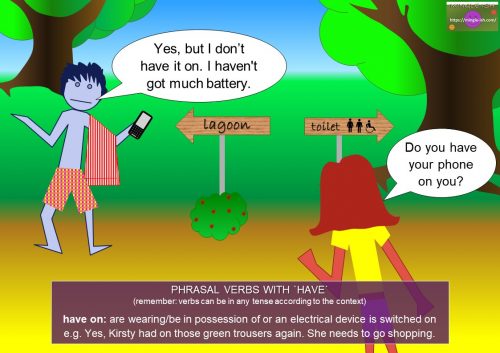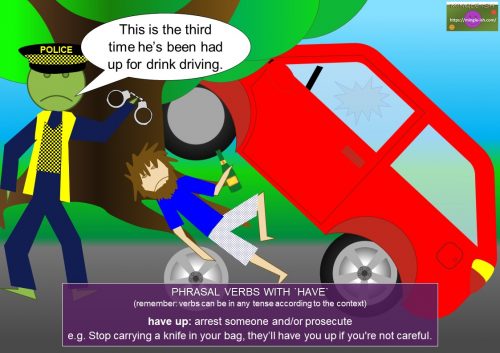The word ‘have‘ can mean many different things. As a verb, the meaning is to own or to experience.
For example:
- I have 6 cats. (own)
- I had a great time. (experience)
Have is an irregular verb. The past tense is had and the past participle is had.
phrasal verbs with have
Phrasal verbs with ‘have’ include:
- have around/round/over
meaning – invite someone to your house
example – We couldn’t come on Saturday; we had our grandson around for the day. - have in
meaning – have supplies or get someone to do work for you
example – We are having the plumbers in this week to fix the kitchen sink. - have it away
meaning – have sex with someone
example – My neighbour had it away with her husband’s brother. He found out yesterday. - have it in for
meaning – hold a grudge against someone
example – Do you have it in for him? Whenever I mention his name you make a funny face. - have off
meaning – take time off work
example – I had 2 weeks off last month. I’m not allowed any more holiday. - have on
meaning – are wearing/be in possession of or an electrical device is switched on
example – Yes, Kirsty had on those green trousers again. She needs to go shopping. - have up
meaning – arrest someone and/or prosecute
example – Stop carrying a knife in your bag, they’ll have you up if you’re not careful.
picture phrasal verbs with have
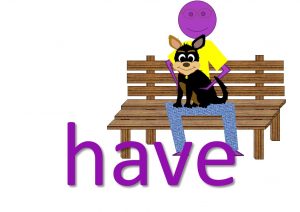
Let’s learn the meaning of the phrasal verbs that contain the verb ‘have’ in more detail and see some examples in use.
Did you know that many idiomatic expressions (idioms) in English also contain a lot of verbs? Just like phrasal verbs, idioms are a major part of the English language (slang in particular). They are used constantly amongst native English speakers and are handy to know and understand.
Now you’ve learnt all the phrasal verbs with have, how about learning the idioms with have too?
